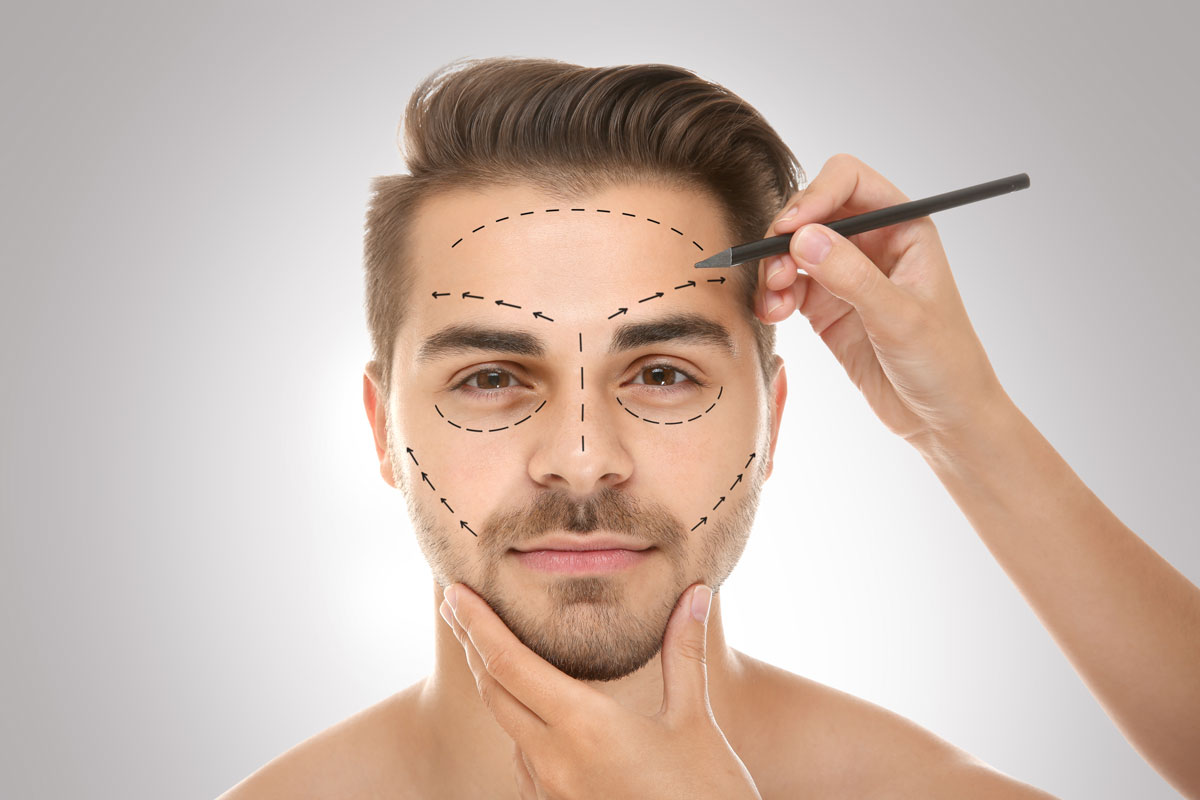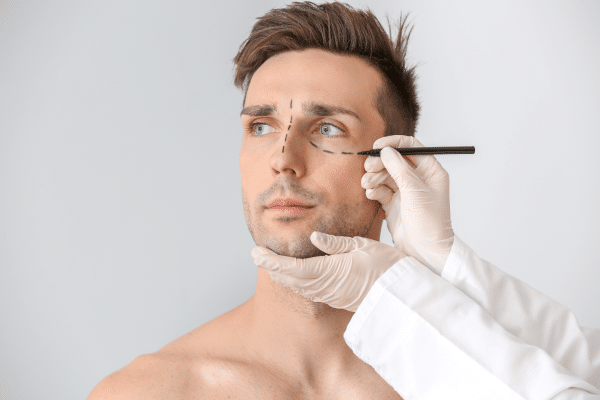Checking Out the Emotional and Social Elements That Drive People to Think About Plastic Surgery as a Method of Enhancement
The decision to pursue cosmetic surgical procedure usually prolongs past simple visual appeals, linking with social and emotional characteristics that warrant comprehensive assessment. Elements such as self-esteem, prevalent societal elegance standards, and the pervasive impact of social media converge to shape individual inspirations for surgical improvement.
The Function of Self-worth
Self-esteem significantly affects a person's decision to seek plastic surgery. Individuals with low self-worth commonly regard themselves in an adverse light, leading to feelings of inadequacy regarding their physical look. This unfavorable self-perception can drive them to seek surgical treatments as a method of improving their self-image. The desire for improvement in one's look is often connected to a belief that such adjustments will certainly boost their total self-respect and confidence.

Eventually, the duty of self-confidence in the decision-making process regarding plastic surgery highlights the complex interplay between body image, personal contentment, and psychological health and wellness. Understanding this relationship is critical for healthcare professionals to make sure that clients are making notified decisions rooted in practical assumptions and emotional well-being.
Social Elegance Standards
Influenced by prevalent media portrayals and social stories, social charm criteria play a crucial duty in shaping people' perceptions of their own bodies. These standards are commonly characterized by an idealized kind of beauty that highlights traits such as youthful vigor, proportion, and slimness. As these perfects are bolstered with different channels, including television, film, and advertising, people regularly internalize these messages, causing frustration with their all-natural look.
The ramifications of these societal norms expand past aesthetic preferences; they can impact self-worth, psychological wellness, and interpersonal partnerships. People who view themselves as disappointing these criteria might experience sensations of inadequacy, prompting a need for plastic surgery as a way of accomplishing societal approval. This pursuit is frequently sustained by the belief that adapting these suitables will enhance not just physical appearance however likewise social standing and individual gratification.

Impact of Social Network
The effect of societal beauty requirements is additional magnified by the surge of social media sites platforms, where curated photos and idyllic depictions of appeal are ubiquitous. Individuals are constantly exposed to filtered and edited photos, which commonly show unattainable physical features. This direct exposure grows a society of comparison, leading individuals to examine their own look versus these frequently impractical standards.
Social network influencers and stars often advertise cosmetic procedures, normalizing the notion that medical improvements are a practical methods for accomplishing societal suitables (plastic surgery rancho cucamonga). The exposure of these improvements can develop an understanding that undertaking plastic surgery is a standard practice, thereby influencing individuals to consider comparable treatments as a path to boosted self-esteem and social acceptance
In addition, the interactive nature of social networks enables immediate responses with sort and remarks, further strengthening the need to comply with popular charm criteria. Such interactions can exacerbate feelings of inadequacy and drive people toward cosmetic surgical procedure as a means of gaining validation. Ultimately, social media plays a crucial role in shaping assumptions of beauty, which considerably impacts the decision-making procedures surrounding cosmetic surgical procedure.

Cultural Viewpoints on Look
Across various societies, understandings of look are deeply rooted in historic, social, and financial contexts, shaping individuals' sights on appeal and desirability. In several cultures, appearance functions as a substantial pen of identification, affecting social status, expert opportunities, and individual relationships. For instance, in some cultures, light skin is usually connected with wide range and benefit, while others may idealize darker complexion as signs of toughness and credibility.
In addition, conventional elegance requirements are frequently perpetuated via social stories, media depictions, and family members affects, bring about varying suitables throughout various areas (plastic surgery rancho cucamonga). In Western cultures, the focus on young people and physical fitness often drives people towards aesthetic enhancement, while in certain Eastern cultures, even more subtle adjustments lined up with conventional visual appeals might be liked
Globalization and the proliferation of electronic media have actually additionally made complex these page dynamics, producing a hybridization of elegance ideals that transcends geographical boundaries. As individuals increasingly browse these social narratives, the pressure to adjust to specific look requirements can result in the desire for cosmetic surgical treatment, showing a complicated interaction of individual ambitions and cultural worths. Recognizing these cultural point of views is essential in resolving the inspirations behind plastic surgery considerations.
Psychological Influences of Aesthetic Surgical Procedure
Many individuals looking for plastic surgery report experiencing profound psychological effects that can significantly plastic surgery inland empire alter their self-perception and psychological wellness - plastic surgery rancho cucamonga. The wish for physical enhancement typically originates from underlying concerns such as low self-confidence, body dysmorphic problem, or social pressures concerning beauty criteria. For some, the immediate post-operative stage can result in a temporary increase in confidence and fulfillment with their look, cultivating a sense of empowerment
However, these favorable feelings may not be sustaining. Study indicates that while some people experience improved self-worth, others might face elevated stress and anxiety or anxiety if their expectations are not fulfilled. This discrepancy can emerge from unrealistic suitables continued by media depiction and social narratives surrounding elegance.
Additionally, the mental implications of cosmetic surgery prolong beyond the individual. Relationships with friends and family may be strained as social characteristics shift, resulting in sensations of isolation or alienation. Eventually, the mental influences of plastic surgery are intricate and diverse, calling for cautious consideration by both prospective people and medical care providers to make certain enlightened decision-making and practical assumptions.
Final Thought
In conclusion, the decision to pursue plastic surgery is substantially influenced by a combination of self-esteem problems, societal charm criteria, and cultural perspectives on appearance. The pervasive reach of social networks additionally aggravates these stress, promoting impractical ideals that people usually make every effort to obtain. Recognizing these emotional and social elements is crucial for resolving the inspirations behind plastic surgery, highlighting the need for a much more nuanced discussion surrounding beauty and self-acceptance in modern culture.
The decision to seek cosmetic surgery typically prolongs past mere looks, linking with social and emotional characteristics that merit detailed exam. Inevitably, social media plays a crucial duty in pop over to these guys shaping perceptions of charm, which dramatically impacts the decision-making procedures surrounding cosmetic surgical procedure.
As people progressively navigate these cultural stories, the stress to adhere to particular look requirements can lead to the need for cosmetic surgical treatment, mirroring a complex interplay of social values and personal aspirations.In verdict, the choice to pursue cosmetic surgical procedure is substantially influenced by a mix of self-worth problems, societal charm criteria, and cultural perspectives on look. Understanding these psychological and social elements is necessary for resolving the inspirations behind cosmetic surgical treatment, highlighting the need for a much more nuanced conversation bordering elegance and self-acceptance in modern society.